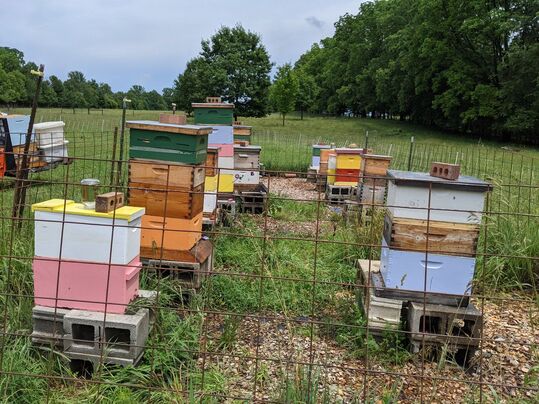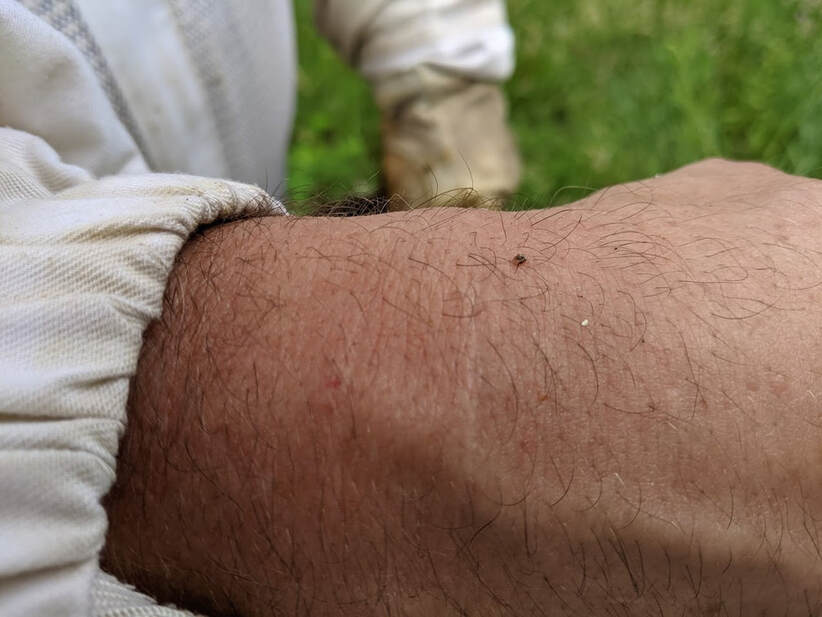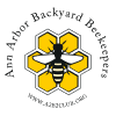|
Anaphylaxis
No matter what you read on the internet, the simple truth is bee stings are dangerous. Even if you are not allergic, even if you have been stung many times before, even if you have gentle bees, every sting is an opportunity for an anaphylactic reaction. Again, even if you are not allergic to bee stings, you can spontaneously develop an allergy and have a systemic overreaction by your body that can cause fever, vomiting, diarrhea, dizziness, headache, convulsions, throat swelling, trouble breathing, loss of consciousness, shock, and in some cases, death. While multiple stings at the same time are more likely to cause a severe reaction, these serious symptoms can be caused by a single sting. ALL BEEKEEPERS should carry epinephrine auto injectors (i.e. Epipens) with them when working their hives, especially hives that are remote or when doing inspections alone. Also, as a beekeeper, you will get stung. There is no way to not get stung, only to minimize the amount and severity of the stings. That being said, even if you are or become allergic to bees, with proper immunotherapy and precautions, you can still continue beekeeping (I am a bee sting allergic beekeeper). Benadryl Most honey bee stings cause a local reaction at the sting site. This reaction typically includes: pain, swelling, redness, heat, itchiness, and tenderness that can last a few hours to a few days based on the individual and any topical or systemic treatment applied or taken. Topical treatments include ice, meat tenderizer, antihistamine (i.e. Benadryl) spray, cream, or ointment, and steroid (i.e. cortisone) spray, cream, or ointment. Some people also experience a more moderate reaction with hives that appear on other parts of the body and/or more generalized swelling of the entire area (like the entire hand for example) that worsens over time. Sometimes these more moderate symptoms can be controlled with oral antihistamines (i.e. Benadryl), though oral steroids like Prednisone are sometimes needed. Any reaction that is more than local inflammation at the site of the sting is cause to see a doctor. Caustic What is a stinger? What happens when a honey bee stings you? Only female bees have stingers because they are a modified ovipositor. The stingers of the worker bees are barbed and have two parts which allows them to work their way deeper into the flesh. The stingers are attached to venom sacks which continue to pump venom into the body of the victim minutes after it has pulled away from the bee itself, eviscerating and killing the bee in the process. Not unlike snake venom, honey bee venom is a witch’s brew of peptides and other substances meant to injure the thing that is stung. The main component of bee venom is a peptide called Melittin which causes pain and cell death. More Information: https://www.beeawareallergy.com/resources/beekeepers/high-risk-allergy/
1 Comment
4/6/2023 02:08:05 pm
It stood out to me when you mentioned that people can spontaneously develop allergies to bees. I would imagine that certain people are more likely to develop allergies to bees than others. It would probably be a good idea to have your children tested for allergies by a pediatrician so that you can know if you need to be prepared for anaphylaxis reactions.
Reply
Leave a Reply. |
AuthorJen Haeger is a new master beekeeper and board member of A2B2. Archives
August 2022
Categories
All
|



 RSS Feed
RSS Feed
